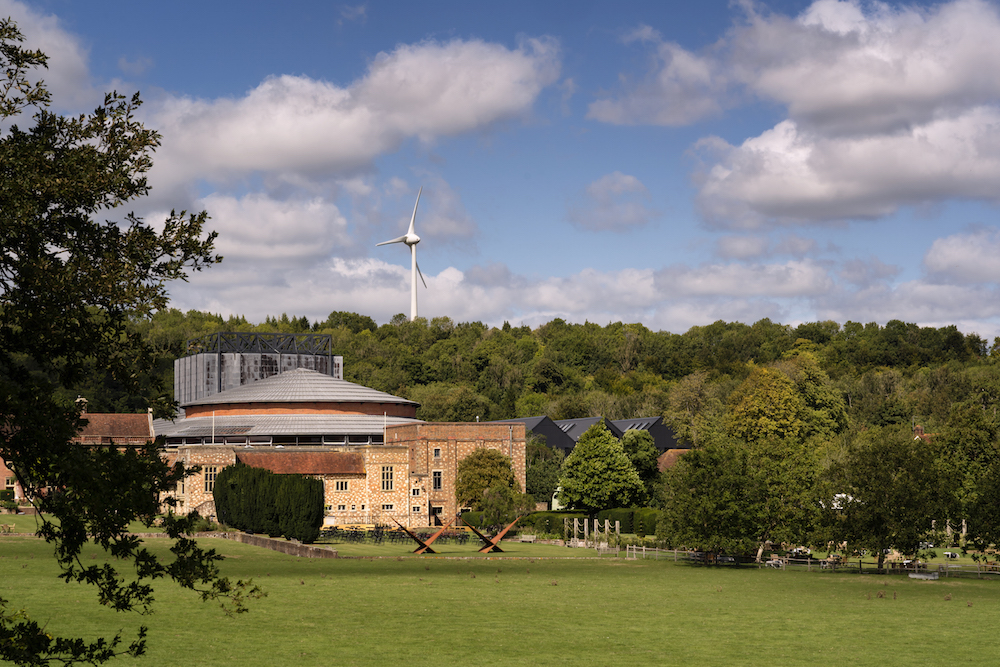Going Beyond Net Zero: How Digital Marketing Agency Propellernet Reaches Farther than its own Emissions
As a digital marketing agency, Brighton-based Propellernet naturally has lower emissions than a company of its size in a different sector, such as construction or manufacturing. Their emissions mostly stem from office outputs, technology infrastructure and scope 3 emissions, including things like the goods they purchase or employee travel. When it came time to evaluate and reduce their emissions, they didn’t limit themselves to bringing their own operations to net zero. Instead, they’re working to drive down their carbon outputs to the lowest degree possible, use offsets to restore any historical impact they’ve had on climate, and ultimately become carbon negative to account for companies that cannot meet these goals themselves.
We chatted with Sam Zindel, the company’s Managing Director, to discuss their model for climate ambition. As a firm believer that businesses have a substantial role to play in collective climate action, Sam shares the changes they’ve implemented in hopes their plan can help small businesses around the world set ambitious targets of their own.
How did climate action become a business priority of Propellernet?
Propellernet has always been a conscious business. We seek out challenges that are bigger than our ‘day to day’ jobs and choose to act. When I became co-Managing Director in 2019, I made it my first job to focus on reducing our impact on the environment.
As a digital marketing agency, what are your main sources of emissions?
We are a service business in the digital sector, so our carbon footprint is lower than many businesses of our size (we have about 40 employees). Our carbon emissions for the 12 months between April 2020 to March 2021 was 75 tCO2e. 90% of our emissions are from our purchased goods and services, which fall into the scope 3 category. The biggest contributors are our office air conditioning and IT infrastructure. In fact our office environment as a whole is the single biggest carbon emitter.
What were the first steps Propellernet took to reduce emissions?
The quick wins for us included switching to a renewable energy supplier, selling our office car and reducing the size of our office space by getting rid of one of three floors we occupy. A number of enforced changes due to the COVID-19 pandemic have also helped reduce emissions over the last 18 months. That included things like a big drop in the use of our office and limiting travel to client premises.
Our number one priority is to radically reduce our emissions. Our target is to eliminate 50% of our carbon footprint by 2025. We’ve done so by:
- Switching to 100% renewable energy
- Monitoring the business and home working environment to reduce energy through tasks like heat monitoring, unplugging chargers, and even reducing the number of emails sent
- Installing water reduction devices, to lower waste from toilets and taps
- Choosing energy efficient transportation options or remote conferences
- Localizing our supply, including data centers and IT tools, and relying on providers with better green credentials
Our employees are also able to pay a percentage of their salary into our climate action fund, which is used to purchase carbon credits. Propellernet matches that value to double the impact. We call this a “pension for the planet” as the employee/employer matched funding works in a similar way to a pension. In our first 10 months, we have offset 600 tCO2e – equivalent to 8 years of carbon emissions. A major goal is to clean up 17 years of our history since the company was formed, which we are on track to do by July 2022.
Probably the most ambitious goal we have is to plant 1 million trees by the end of 2023. We are doing this in partnership with Eden Reforestation Projects (Gold Standard verified), and so far we have planted just over 200,000.
What business benefits have you seen so far as a result of taking climate action?
Our climate action gives our business a renewed purpose and energy. Our leadership team is motivated by our climate goals and this runs through the whole business and even into our clients’ world. When we win a new client, we plant 1,000 trees for them and every time a new person starts at Propellernet we give them 500 trees. It’s a great way to engage people in our climate action.
We know that every business will have to act on climate, either by their own choice or via more interventionist measures like carbon taxes or penalties. And so, by leading the field with radical action now, we will be in a great position to capitalize on the opportunities of running the business sustainably. Already, we are attracting a different breed of inbound leads and prospects. This has been amplified by our recent B Corp certification. You have to recognise that your business’s scope 1 and 2 emissions are another business’s scope 3, so we are becoming an increasingly attractive part of the value chain for larger organisations.
When will Propellernet meet net zero goals? How far along is the company now?
On paper we have gone way below net zero when you take into account our carbon credit investments and tree planting, but this is a false position, as we have a ways to go to hit our emission reduction targets. As a low carbon business, I don’t see net zero as a relevant target. We have separated our targets into two discrete elements:
- Reduce our carbon emissions by as much as possible
- Invest as much as we can in natural-based climate solutions to restore the Earth’s ecosystems and biodiversity to create a more resilient climate
This is different to companies with larger carbon footprints who have to reduce as much as they can and offset to reach net zero.
Do you have advice for small businesses looking to take the first step?
Don’t overthink it. Act now. A lot of companies feel they don’t have the time or money to tackle climate change in their organisation. But acting sooner will be far less costly than putting it off until legislation and competition force you into taking action. It’s really about priorities and educating yourself on risks and opportunities, then changing how you do things.
As the leader of a business of any size, part of your responsibility is to mitigate risk and plan for the future. Take responsibility and educate yourself. There are a lot of useful guides and articles online such as the SME Climate Hub which business leaders can access and learn from.
Were there any key learnings you faced that might be applicable to SMEs around the world?
For smaller businesses, I wouldn’t necessarily advise a linear process of taking climate action (measure, reduce, offset). We planted over 100,000 trees before we knew what our carbon footprint was. Taking the first steps and building a vision and goal are the most important things. At the end of the day, we will all need to reduce our emissions and help reduce greenhouse gas emissions from the atmosphere, so get started in both directions and work out the details later.
You can learn a lot from other businesses like yours. Share ideas, copy things and collaborate. This is one challenge that we all face together. We need to have an open-source approach, so shout about what you are doing and be happy when others follow your lead.
Why would you recommend small businesses within and outside of your industry take climate action?
If you need more justification than an existential crisis to be handed on to the next generation (!) then consider how your business fits into the macro economy over the next 10 to 20 years. We are moving towards a net zero economy. Either your business will be a part of that – and possibly be a leader – or you will become stranded in a world from which investors and consumers have moved on. Sustainability done properly is a resilient business strategy.
Why did Propellernet choose to make a commitment with the SME Climate Hub? What are the main benefits you’re seeing so far?
I found the SME Climate Hub via the UN Race to Zero. It was one of the first pledges we made. It is good to feel part of a movement of like-minded companies. We are now focussed on sharing knowledge with similar companies in our sector – digital/tech/service – and have formed other networks that complement the work of the SME Climate Hub. I’m hoping for an opportunity to work with other pledgers in our sector.
Small businesses like Propellernet provide invaluable insights on the journey towards net zero. Interested in sharing your own climate journey for potential inclusion as a business spotlight? Tell us how you’re working towards reducing emissions today via this short form.



